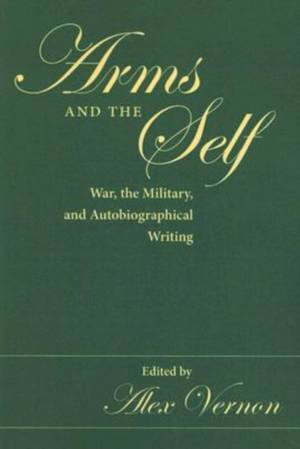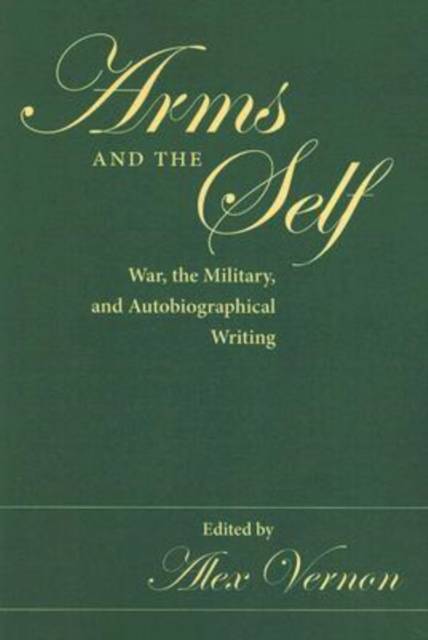
- Retrait gratuit dans votre magasin Club
- 7.000.000 titres dans notre catalogue
- Payer en toute sécurité
- Toujours un magasin près de chez vous
- Retrait gratuit dans votre magasin Club
- 7.000.0000 titres dans notre catalogue
- Payer en toute sécurité
- Toujours un magasin près de chez vous
Arms and the Self
War, the Military, and Autobiographical Writing
The Kent State University Press
Livre broché | Anglais
25,95 €
+ 51 points
Description
War, armed conflict in general, and military service have likely inspired more textual testimonies than any other human event. Wars shatter every boundary imaginable--from national boundaries to bodily ones--confusing distinctions between social castes as well as between friends and foes, men and women, humans and animals, humans and machines, and even the living and the dead, making it difficult to classify what texts actually fall into the category "military autobiography." With its wide range of primary texts to demonstrate the many conflicts, author-participants, and interpretive perspectives, Arms and the Self provides an eclectic, suggestive perspective on this complex and varied field. With contributing authors such as Lynn Z. Bloom, Margaretta Jolly, Robert Lawson-Peebles, and Robert Shenk, the critical essays extend from Xenophon's memoir of his two years marching with the mercenaries of the Persian Prince Cyrus, through Canadian accounts of the Boer War and American civilian women's narratives of confinement in WWII Japanese internment camps, to Vietnam veterans' online testimonials and post-Persian Gulf War memoirs written as management primers. This thought-provoking collection adds significantly to the critical canon of military autobiography. With a helpful introduction and an extensive bibliography, Arms and the Self is an excellent tool for those interested in the literature of war and autobiographical writing.
Spécifications
Parties prenantes
- Auteur(s) :
- Editeur:
Contenu
- Nombre de pages :
- 305
- Langue:
- Anglais
Caractéristiques
- EAN:
- 9780873389105
- Date de parution :
- 01-01-01
- Format:
- Livre broché
- Format numérique:
- Trade paperback (VS)
- Dimensions :
- 164 mm x 230 mm
- Poids :
- 526 g

Les avis
Nous publions uniquement les avis qui respectent les conditions requises. Consultez nos conditions pour les avis.






